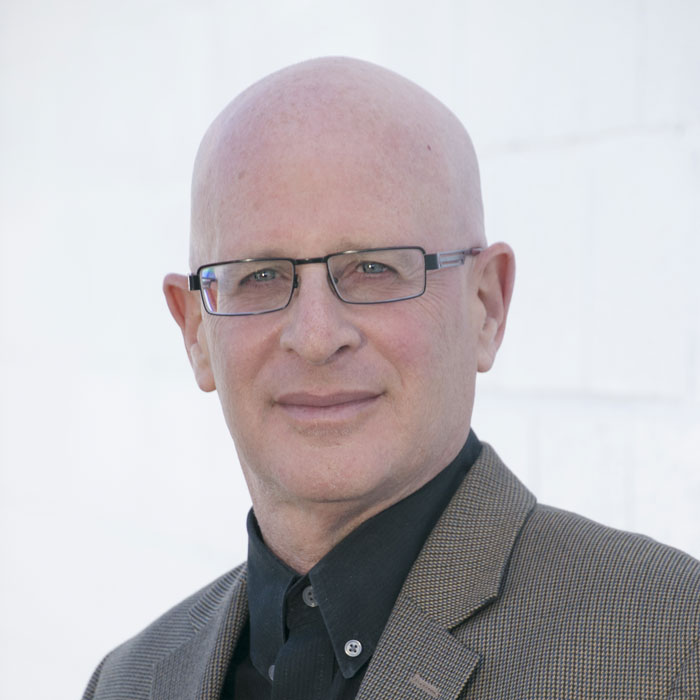Podcasting has become fairly mainstream — but that wasn’t always the case. In the early aughts, there were only a handful of creators exploring the medium. It was those same creators who built the earliest communities of podcast fans, teaching people just how fantastic audio content can be. As the creator and host of Small Biz America from 2005 to 2018, David Wolf was one of those early podcasters.
“It was very broad strokes,” David says of Small Biz America on an episode of Between 2 Mics. “[I would] interview entrepreneurs and talk about problems and solving them and it was early enough [in podcasting] where I got to interview a lot of people.”
David produced about 300 episodes of Small Biz America before deciding to pivot his work in the podcast industry.
“I got more intrigued with the idea of building a business that helps other people do [what I did],” he says.
Today, David leads the team at Audivita Studio, which he founded to support companies and individuals growing their brands through audio content. While podcasting remains a core part of his business, David has also moved into the audiobook space. (Full disclosure: Audivita uses the SquadCast platform and David has been kind enough to continuously offer us feedback to help make our product better over the years. We appreciate it!)
David is passionate about using audio and recording technology in new and creative ways. As an innovator with deep experience in the space, here are a few things he’s learned about the medium.
1. Remember: recording is recording is recording
David has a long history in audio production — prior to starting Small Biz America, he worked as a music producer — and is no stranger to the nuts and bolts of recording. In spite of his long career in the audio world, he likes to joke that he more or less “tripped over” the business model for Audivita.
The epiphany that kicked off the business? It had to do with realizing how his audio production skills could be transferred. He says it went a little something like this: “Recording and production is recording and production if you’re an audio [professional].”
This realization has propelled David and the rest of the Audivita team to push past their limits — they now embrace a variety of audio storytelling forms. Audivita currently has 35 podcasts in production and recorded 100 audiobooks in 2019. David is actively pursuing publishing partners in hopes of growing the audiobook arm of the biz.
This diversification was possible because — as David says — recording is recording is recording (we could go on, but we’ll stop). If you have the skill set and resources to record and produce one form of audio, you likely have the skill set and resources to record and produce other forms of audio. It’s all about getting creative and having enough confidence to expand your offerings.
2. Celebrate the simplicity of remote recording
Long before the COVID-19 pandemic was forcing people to get comfortable with remote work and communication, David and his Audivita colleagues were embracing the capability to record from multiple locations. (Humble brag: This was one of the things that most appealed to him about SquadCast!) In fact, their emphasis on remote recording has been a key differentiator for them as they’ve broken into the audiobook world.
“Why would you go and pay by the hour for a big, fancy studio when it’s really voice-to-mic and you don’t need a lot of bells and whistles? I created a business that was completely virtual.”
Traditionally, authors or audiobook narrators have had to commit to long stretches of time in a formal studio in order to produce an audiobook. This model is limiting and expensive — not to mention inconvenient. David’s ability to apply his podcasting experience to the process of recording an audiobook has disrupted that model.
“Because of the technology [SquadCast has] implemented, it made it a no brainer for us,” David says. “Why would you go and pay by the hour for a big, fancy studio when it’s really voice-to-mic and you don’t need a lot of bells and whistles? I created a business that was completely virtual.”
3. Understand the value of audio for brand-building
For many years, most audiobooks were performed by dedicated audiobook talent. But that’s changing! More and more, the authors themselves are taking the lead on recording their work. David believes that the growth of podcasting has had a lot to do with this trend.
“Because of podcasts … the narrator [has become] the voice of their brand,” he says. “It’s their connectivity to the market. What we like to say to our prospects and when we’re talking to an author about this is [that] we like the idea of you doing your own narration because you are the connectivity to the market. That just helps them build their platform and authority online.”
David affectionately calls his industry “the spoken word content production space.” And the person who actually speaks the words of your content really matters!
For more of David’s insights on how to get creative with your podcasting resources, listen to this episode of Between 2 Mics. Be sure to subscribe to get future episodes directly in your preferred podcast player.
Rockwell Felder is a CPA, entrepreneur, and co-founder of SquadCast. He and his team are on a mission to amplify collaboration, seeking to empower creatives to engage in meaningful conversations without barriers.
